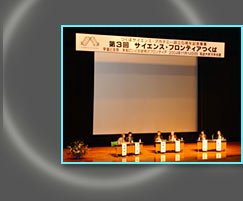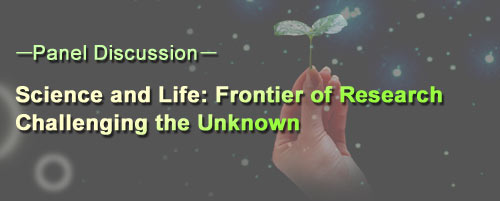 |
We need to seriously consider the cost and benefits of sending humans to the outer limits.
I am involved in the submersible research vehicle Shinkai 6500, and we are faced with the dilemma that it would be better to send robots than humans. But there are things only humans can understand. For example, Astronaut Mamoru Mohri has been to space as well as the deep sea. He reports that he can tell the difference between the darkness of the deep sea and that of outer space. This is not something robots can do.
When I sank into the deep sea in Shinkai 6500 and saw living things in front of my eyes, I was extremely moved. I felt some kind of indescribable connection with the Earth. This feeling of connection went not only beyond space, but also beyond time. By going to a frontier, I felt that I was a member of the whole family of Earth's creatures. I believe people seek to go to this kind of frontier to feel that kind of connection with the Earth. Only a few people can visit this kind of frontier, so they must communicate their experience to others.
I believe that when we use our imaginative power, we need to be thoughtful and compassionate, so that we can feel that connection. If we put too much emphasis on cost performance, we are at the risk of putting too many restrictions on our research, leading to the rapid loss of our imagination power and interest in science, and the lack of compassion in children and adults. I believe the promotion of spiritual enrichment serves the best interests of the nation. Sending humans to frontiers and enhancing our imaginative power through their experience can contribute to this.
|
 |















